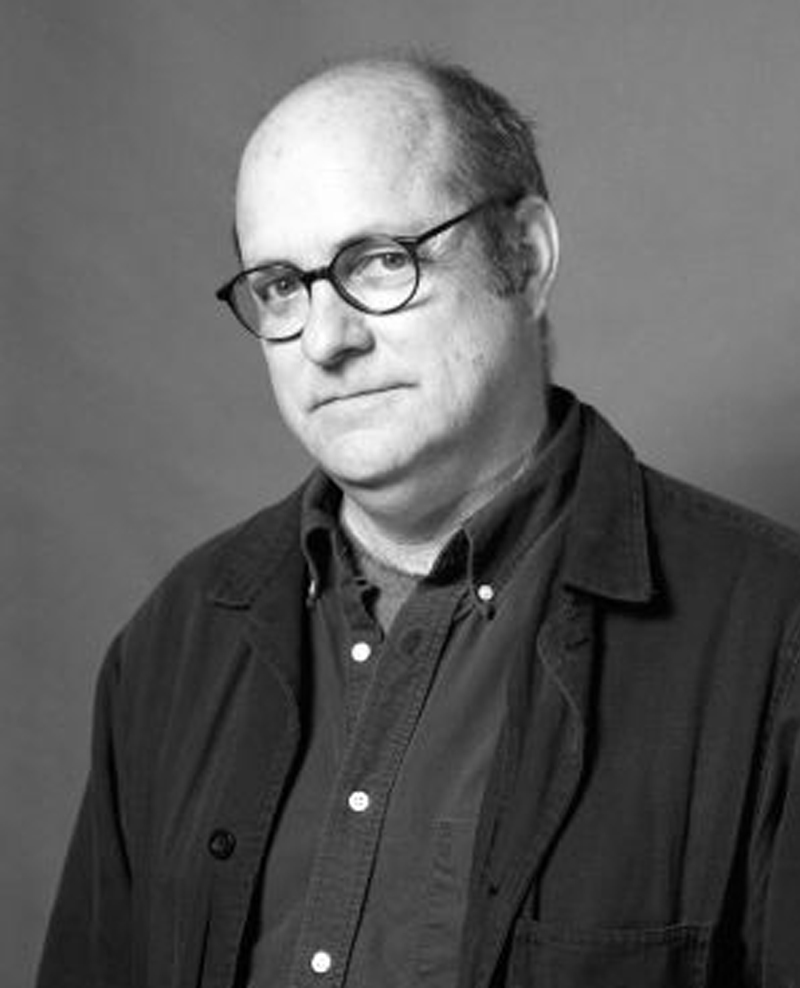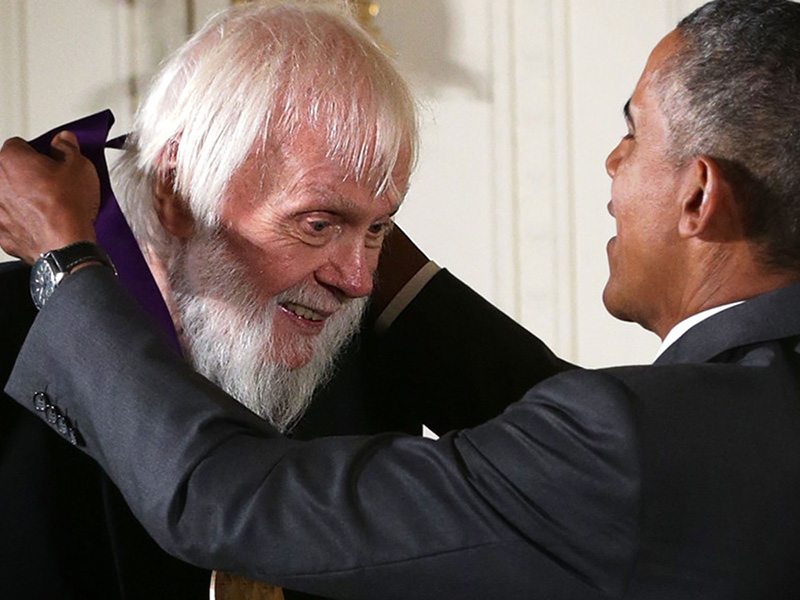|
|
Allan Sekula
Instructor, California Institute of the Arts
January 15, 1951 — August 10, 2013
California Institute of the Arts
|
— from the citation for the College Art Association's Distinguished Renowned photographer, critic and educator passed away Aug. 10, 2013. Sekula was born on January 15, 1951, in Erie, PA, the first of five children of Evelyn Shepard Sekula, a homemaker, and Ignace Sekula, a chemical engineer who worked most of his life in the aerospace industry and the USAF. He died in Los Angeles on August 10, 2013, after contending with advanced gastric-esophageal cancer during the previous two years. Before his teens, his family relocated to San Pedro, CA, the port of Los Angeles, where Sekula continued to live until college and where he grew to love the sea and the rich culture, both social and maritime, of the harbor. He enrolled at UC San Diego with undergraduate plans to study marine biology but after a few art courses with John Baldessari, he switched majors to visual arts; after receiving a BA, he continued at UCSD in the MFA program, working intensively with writer and performance art teacher David Antin at the same time as he formed a network with socially committed left photographers Martha Rosler, Fred Lonidier, and Phel Steinmetz. Shortly after receiving his MFA degree in 1974, he began publishing widely-read articles offering critiques of the social uses of photography and its anodyne embrace by the art world in "Artforum."
After briefly teaching at NYU in the School of Cinema Studies, Sekula taught for five years in Ohio State University's Department of Photography and Cinema, before returning in 1985 to Los Angeles to join the faculty of California Institute of the Arts (CalArts) where he taught for nearly three decades. In East of Borneo, Thomas Lawson, Dean of CalArts School of Art remembers his colleague, "Allan had a remarkable, indomitable spirit. For over two years, from the first word that his body could not be repaired, he fought against the inevitable with inner strength and grace. At first he continued to travel for his work, then his many collaborators traveled to him so that several projects could move forward. He lost weight and he lost energy, but he never lost that keen eye and sharp mind that saw so clearly what was wrong with this world." The essays collected in Sekula's first book, Photography against the Grain: Essays and Photo Works 1973–83 (1984), significantly altered the way in which the documentary function of photography was conceptualized. His more recent volumes mobilize us through his visual art and writing to carefully consider the effects of capitalism, globalization, information formats, and the dematerialization of image and word. Since the early 1970s, his works with photographic sequences, written texts, slide shows, and sound recordings have traveled a path close to cinema. At times, they refer to specific films. In other instances, such as his 1973 work Aerospace Folktales, they operate like a "disassembled movie" while resisting the "dictatorship of the projector." Sekula's books, in addition to Photography against the Grain, include Fish Story, 1995; Geography Lesson: Canadian Notes, 1996; Dismal Science, 1999; Performance Under Working Conditions, 2003; TITANIC's Wake, 2003; and Polonia and Other Fables, 2009. These works range thematically from critical investigations of the history of photography to studies of family life in the grip of the military-industrial complex, branching out into explorations of myths of national identity. His longstanding interest in questions of maritime economies and their relation to globalization led to a number of widely exhibited works, including The Forgotten Space. His extended photographic works on this subject were featured in Documenta 11, 2002, and Documenta 12, 2007, in Kassel, Germany. Video and films related to this broad topic include Tsukiji, 2001, Lottery of the Sea, 2006, and in collaboration with co-director Noël Burch, The Forgotten Space, 2010, the latter having won the Special Jury Prize in the Orizzonti Competition at the 2010 Venice Film Festival. Sekula's numerous honors include both Artist's and Critic's awards from the National Endowment for the Arts, John Simon Guggenheim Memorial Fellowship, Center for Advanced Study in the Visual Arts, Getty Research Institute, Deutscher Akademischer Austauschdienst, The Calder Studio Residence; in 2012 he was awarded the Distinguished Lifetime Achievement Award for Writing on Art by the College Art Association. Among major art collections that have acquired his photographic works are Generali Foundation; J. Paul Getty Museum; Getty Research Institute, Resource Collections; Henry Art Gallery; Los Angeles County Museum of Art; Musée National d'Art Moderne [Centre Pompidou]; Museo de Arte Reina Sofia; Museu d'Art Contemporani de Barcelona; Museum Boymans van Beuningen, Museum of Contemporary Art [L.A.]; Museum of Modern Art [N.Y.]; Orange County Museum; San Diego Museum of Contemporary Art, La Jolla, CA; San Francisco Museum of Modern Art, CA; Stedelijk Museum; Vancouver Art Gallery; Walker Art Center; and Whitney Museum of American Art. He is represented by Christopher Grimes Gallery, Santa Monica, and Galerie Michel Rein, Paris. This past summer, Beaux-Arts de Paris éditions published his Écrits sur la Photographie. At the end of this year, Sekula's most recent exhibition and book project, The Dockers' Museum, is scheduled to be published by Leuven University Press. Allan Sekula is survived by his mother, Evelyn, and his siblings Stefan, Brian, Victoria and Michelle, along with his wife, Sally Stein. A memorial service will be organized by his school CalArts, where contributions may be made to the Allan Sekula Social Documentary Fund.
|
Ed Fella, Graphic Design
Mel Powell, Music Dean & Provost
Charlie Haden, Jazz Studies Founder
Allan Sekula, Photography
Leo Hobaica, Character Animation
Fran Bennett, School of Theater
Mark Trayle, Sound Artist
John Baldessari Studios Dedicated 3/10/2015
Baldessari: National Medal of Arts 2015
Baldessari Obituary 2020
Ravi Rajan 2020
|
The site owner makes no assertions as to ownership of any original copyrights to digitized images. However, these images are intended for Personal or Research use only. Any other kind of use, including but not limited to commercial or scholarly publication in any medium or format, public exhibition, or use online or in a web site, may be subject to additional restrictions including but not limited to the copyrights held by parties other than the site owner. USERS ARE SOLELY RESPONSIBLE for determining the existence of such rights and for obtaining any permissions and/or paying associated fees necessary for the proposed use.











